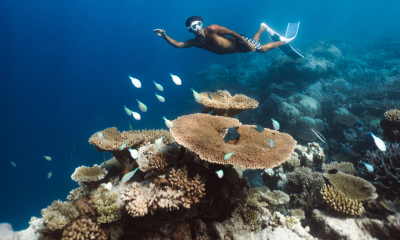Featured
Small islands like Maldives may not disappear under rising seas, researchers find

In recent years, the leaders and inhabitants of many small-island nations like the Maldives, Kiribati and Tuvalu have warned that climate change is an existential threat to their homelands, fearing they could disappear under rising seas as the planet warms.
But according to research published on Wednesday, small, low-lying islands dotted around the Pacific, the Caribbean and Asia — often seen as the places most vulnerable to global warming — can naturally adapt and raise themselves above encroaching waves.
A three-year study led by Britain’s University of Plymouth, which looked at coral reef islands such as the Maldives and the Marshall Islands, found that tides move sediment to create higher elevation, a process that may keep the islands habitable.
“The dominant discourse is that of an island drowning, and the outcome of that is coastal defences and relocation … We think there are more trajectories for the islands,” said lead author Gerd Masselink, professor of coastal geomorphology at the University of Plymouth.
Low-lying island states are judged to be at greatest risk from increasingly powerful storms and rising oceans, with some making preparations to resettle their people within decades.
Many are already building sea walls, moving coastal villages to higher ground, appealing for international aid or setting up projects to repair damage caused by climate change impacts.
The world’s tens of thousands of coral reef islands are mostly uninhabited, but are home to about a million people who largely rely on fishing or tourism for a living, said Masselink.
Although the islands have different structures due to varying weather and wave patterns, they tend to be relatively small, low-lying, sandy or gravel islands sitting on top of a living reef platform.
They were formed hundreds of thousands of years ago by waves moving and piling up reef material or sediment to create higher ground — a natural defence mechanism that continues, he noted.
For the study published in the journal Science Advances, scientists built a model coral reef and island in a laboratory tank with rising water levels, and used computer simulations to replicate how such islands respond to higher seas in reality.
The results suggest that by opting for climate-resilient infrastructure that allows for occasional flooding, like buildings on stilts and movable houses, islanders with enough space could adapt to their shifting environment, Masselink said.
Dredging coral sand and sediments found in island lagoons and moving it to beaches could also aid the natural process of raising the islands, he told the Thomson Reuters Foundation.
Sea walls, however, are compromising the natural ability of the islands to adjust to rising sea levels, he said.
“If you stop the flooding of the islands, you also stop the movement of the sediment on top of the island,” he said.
Most coral islands do not depend on agriculture, and import food and fresh water, making saltwater contamination during flooding less of an issue, he noted.
Hideki Kanamaru, natural resources officer with the UN Food and Agriculture Organisation in Asia-Pacific, said the study provided a “new perspective” on how island nations could tackle the challenge of sea-level rise.
But even if islands can adapt naturally to higher seas by raising their own crests, humans still need to double down on global warming and protection for island populations, he added.
Climate change in Maldives
Maldives comprises 1,190 islands in 20 atolls spread over 900km in the Indian Ocean. Of these, just 199 islands are inhabited with a population of slightly over 515,000 people. The highest point of land is two metres or about six feet above sea level.
The atolls of Maldives are ringed by the seventh largest coral reefs in the world and among the richest in species diversity. The reefs host over 1,900 species of fish, 187 coral species, and 350 crustaceans.
Drawn by its pristine beaches, underwater coral reefs, and spectacular marine wildlife, this small island-nation attracts some 1.5 million tourists annually. In recent years, nature-based tourism has served as the engine of growth for the economy and accounts for about 70 per cent of GDP.
Geography has made the Maldives especially vulnerable to the consequences of climate change. Being land scarce and low lying, the country is exposed to the risks of intensifying weather events such as damage caused by inundation, extreme winds, and flooding from storms.
With the melting of polar ice caps, the Maldives is also exposed to the risks of sea-level rise.
Rising sea temperatures also threaten the coral reefs and cause bleaching and death, with the most severe damage in areas that are stressed by pollutants, or damaged by physical disturbance.
Vulnerability to climate change hazards has been magnified by damage to coral reefs which has in turn impaired their protective function, thus a negative cycle of impact.
Note: The above article is largely based on reporting by Reuters. The cover photo has been sourced from Visit Maldives.
Action
Sun Siyam Vilu Reef unveils expanded marine excursion portfolio

Sun Siyam Vilu Reef, part of the Sun Siyam Privé Collection, has introduced an expanded portfolio of water-based experiences designed to showcase the natural environment and marine life of the surrounding atolls. The enhanced programme combines exploration, activity and moments of calm, offering guests new ways to experience the Maldives through curated ocean journeys and personalised excursions.
Building on established activities such as Jet Car rides, SeaBob adventures and windsurfing, the resort has expanded its watersports offering to include private speedboat journeys and bespoke marine experiences. These additions are tailored for small groups seeking intimate and meaningful encounters with the ocean.
Available daily from the resort’s Watersports Centre, the new private speedboat excursions provide a personalised way to explore the hidden marine sites of Dhaalu Atoll. Designed for one to four guests, each journey offers flexibility and individual attention. Guests may choose from four-hour, five-hour or full-day itineraries, all of which include a freshly prepared barbecue lunch. From coral gardens to secluded sandbanks, the excursions highlight the region’s diverse marine landscapes.
The programme’s centrepiece is the Full Day Adventure Trip, which offers an extended exploration of key marine locations. Highlights include the Coral Garden, known for its biodiversity and reef formations; Turtle Point, where sea turtles are frequently sighted; and Nurse Shark Point, which provides opportunities to observe nurse sharks in their natural environment. The experience concludes with a beachside lunch on a private sandbank, set against uninterrupted views of the Indian Ocean.
For guests seeking a balance between activity and relaxation, the Waves of Adventure and Calmness experience combines a private two-hour snorkelling safari or Jet Ski safari with a full-body massage at the resort. The programme is designed to transition smoothly from ocean exploration to restorative island time, reflecting the relaxed pace that characterises Sun Siyam Vilu Reef.
As part of the Sun Siyam Privé Collection, Sun Siyam Vilu Reef continues to focus on personalised service and experiences rooted in the natural setting of the Maldives. Through its expanded watersports offering, the resort invites guests to engage with the marine environment while enjoying a sense of privacy, discovery and connection to the Maldivian seascape.
Featured
Yoko Kawaguchi to lead holistic wellness residency at Vakkaru Maldives

Vakkaru Maldives has announced the residency of acclaimed holistic practitioner Yoko Kawaguchi at Merana Spa, taking place from 17 March to 30 April 2026. The residency forms part of the resort’s ongoing focus on wellness, restoration and mindful living.
Grounded in Japanese healing traditions, Kawaguchi’s therapeutic philosophy centres on personalised care designed to calm the nervous system, release emotional tension and support the body’s natural restorative functions. Her integrative approach combines auriculotherapy (ear reflexology), aromatherapy, Reiki energy healing and targeted massage techniques to create treatments tailored to individual needs.
Guests may select from a range of core therapies offered during the residency. Highlights include the Tranquil Mind Ritual, which blends scalp massage, ear reflexology and energy work to ease tension and encourage emotional clarity. The Aroma Reiki Healing Touch treatment combines aromatherapy back massage with carefully selected essential oils and Usui Reiki to address both physical and emotional blockages. Auriculotherapy sessions focus on stimulating reflex points in the ears to support hormonal balance, immunity, nervous system regulation and overall wellbeing, with optional ear seeds available to extend the benefits beyond the treatment.
Alongside individual sessions, Kawaguchi will offer complimentary consultations and a programme of group wellness experiences. These include guided Reiki self-healing meditation and ear stretching massage sessions designed to promote relaxation and mental clarity, providing guests with simple techniques to support their wellbeing during and after their stay.
Hosted within the serene surroundings of Merana Spa, the residency offers guests an opportunity to pause, reset and engage in a deeper wellness journey, aligned with Vakkaru Maldives’ philosophy of understated luxury and holistic balance.
Featured
Ancient banyan tree anchors spiritual experiences at Machchafushi Island Resort
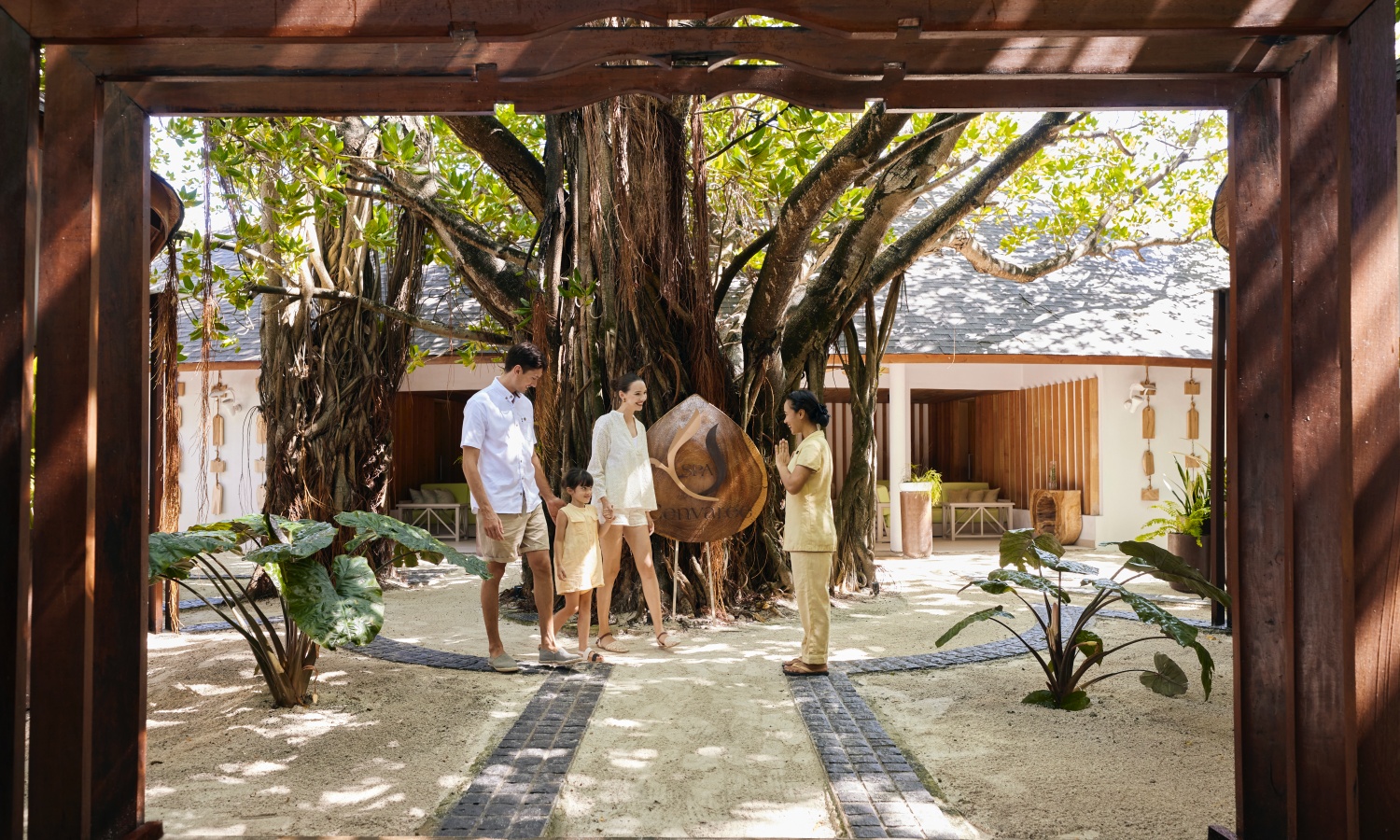
Machchafushi Island Resort & Spa, part of The Centara Collection, offers an island experience shaped by the rhythm of the ocean in the heart of South Ari Atoll. While the resort is widely recognised for its celebrated dive sites, award-winning house reef and rich marine life, another presence quietly anchors the spirit of the island.
Within the peaceful grounds of SPA Cenvaree stands a centuries-old banyan tree known locally as the Ummeedhu Tree, meaning Wish Fulfilment. With its expansive canopy and cascading aerial roots, the tree is regarded as more than a natural landmark. It is a symbol of continuity and reflection, standing as a silent witness to the island’s past and present.
Long before the island became a resort destination, the banyan tree stood rooted in the sands of Machchafushi. Today, the resort honours it as the spiritual heart of the island, inviting guests to pause beneath its branches and engage in moments of reflection and reconnection.
This connection is expressed through the Sacred Thread Ceremony, a contemplative ritual designed to offer guests a personal and meaningful experience. The ceremony begins with a quiet walk through the spa gardens, encouraging stillness and intention. Guests select a delicate golden leaf to represent a personal wish—whether for love, wellbeing, success, abundance or inner peace—and hold it alongside a wish card while visualising that intention fulfilled. The golden leaf is then tied to the banyan’s ancient branches, symbolising the offering of the wish to the tree’s enduring presence. The leaf remains there, carrying the quiet energy of the intention until the guest’s return.
Beyond the banyan, the island continues its natural rhythm. The surrounding waters form part of one of the Maldives’ most significant marine environments, known for year-round whale shark encounters and an extensive house reef that stretches beyond the shoreline. Yet amid the movement of the sea and the vibrancy of coral life, it is often the stillness beneath the banyan tree that leaves the most lasting impression.
Sustainability and heritage are integral to life on Machchafushi Island. Located within the South Ari Marine Protected Area, the island is committed to safeguarding both its marine ecosystems and its cultural identity. The banyan tree stands as a reminder that preservation extends beyond the natural environment to include traditions, stories and the deeper connections between people and place.
At Machchafushi Island Resort & Spa, each day unfolds with moments shaped by nature and intention. From golden sunrises over the lagoon to wishes entrusted to ancient branches, experiences on the island are designed not only to be remembered, but to take root.
-

 Action1 week ago
Action1 week agoBestbuy Maldives supports health, wellness as Main Sponsor of MNU Marathon 2026
-

 Cooking1 week ago
Cooking1 week agoMaagiri Hotel invites guests to celebrate Ramadan with daily Iftar
-
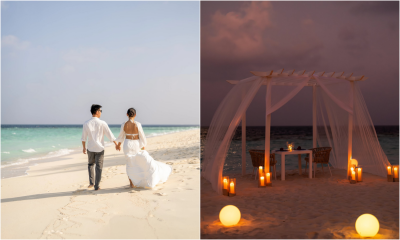
 Love1 week ago
Love1 week agoRomance in nature: Valentine’s week at Eri Maldives
-
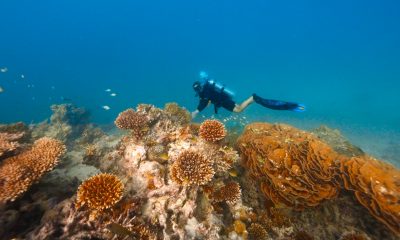
 News1 week ago
News1 week agoVentive Hospitality aligns Maldives portfolio with Green Fins marine sustainability platform
-
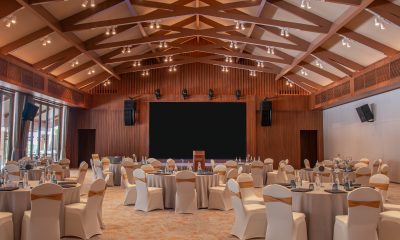
 Business1 week ago
Business1 week agoFeydhoo Hall opens at dusitD2 Feydhoo Maldives as new event space
-

 News6 days ago
News6 days agoThe Ritz-Carlton Maldives, Fari Islands launches conservation programme for environmental observances
-

 Drink1 week ago
Drink1 week agoProvence comes to Maldives with Château Minuty dinner at Milaidhoo Maldives
-
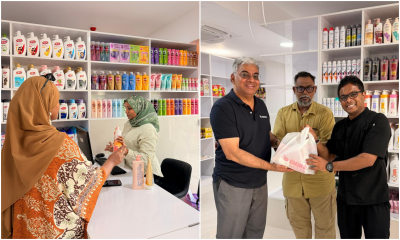
 Business1 week ago
Business1 week agoBBM expands retail presence with new Hulhumalé outlet



